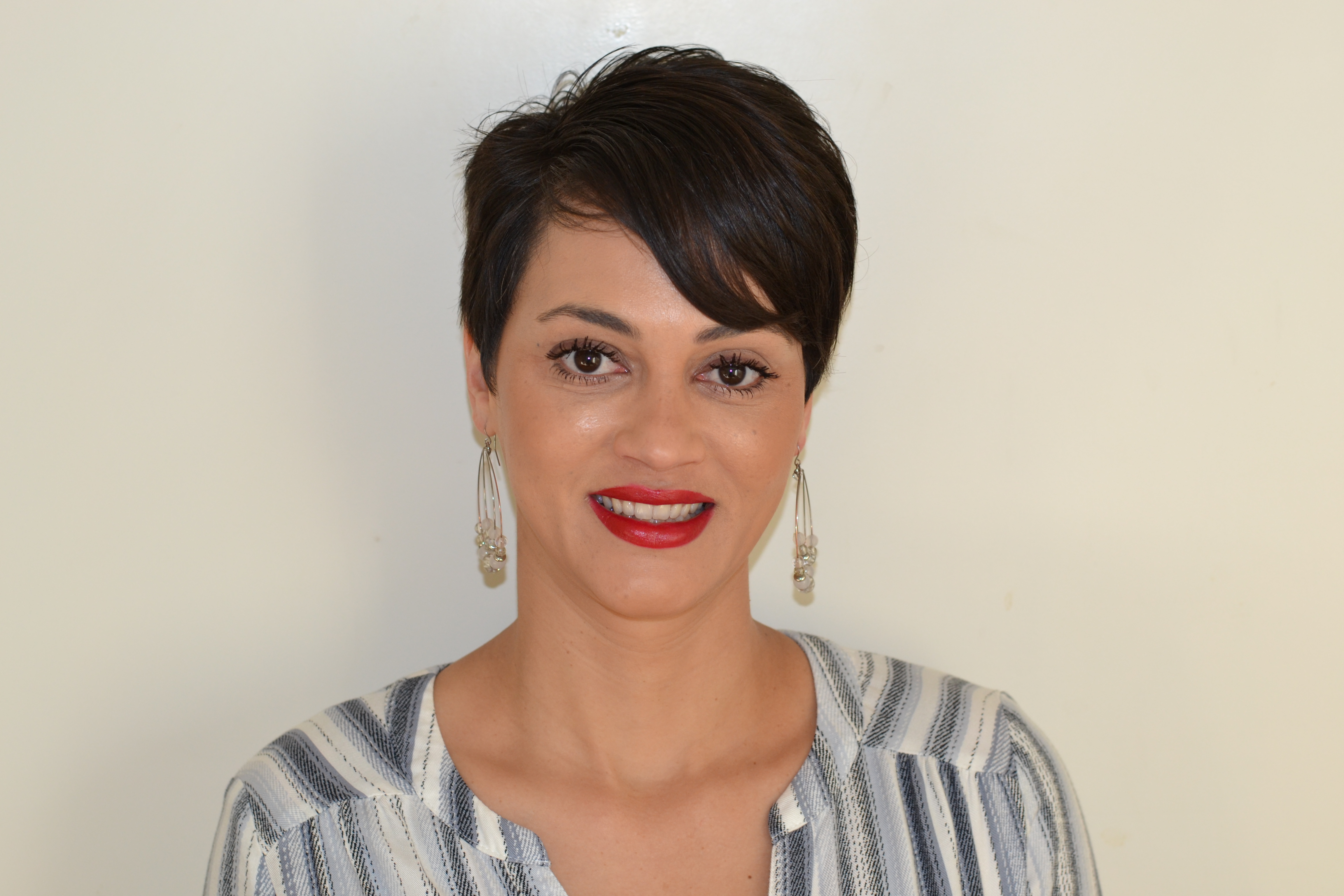In my experience, individuals should do their best to stop the stigmatic shaming cycle by talking more about their mental wellness and less about things that don’t matter. Society needs to educate us on our abilities to be free from mental chains and live a normal life. Our society has become so obsessed with our looks and material things, that it’s contributed to an increase in anxiety, depression and body dysmorphic disorder. We are being taught to focus on things in life that, at the end of the day, doesn’t support a healthy, happy mind. Our government needs to jump on the same band wagon and make mental health accessible to everyone. We need programs that teach CBT and other vital life skills. Now is the time to give the future of our country more hope than ever. It’s time to encourage people to take responsibility for their mental wellness, while offering long term solutions for a healthy life.
I had the pleasure of interviewing Natasha Peters. Natasha was born and raised in southern California. She now lives in San Diego with her husband and two children. Natasha had a very difficult childhood. Her father was a heroin addict whom eventually overdosed when she was 11 years old. Because of the traumas she experienced, she always had the heart to help other people. It wasn’t until a few years after Natasha had a major mental health emergency, that she realized her purpose in life. Natasha is now helping other people suffering with mental illnesses by writing about her personal struggles and facilitates a support group for mothers with mental illnesses.
Thank you so much for joining us! Can you tell us the “backstory” about what brought you to this specific career path?
At age 26, I suddenly began to have horrific intrusive thoughts. These thoughts haunted me day and night. I had no idea what was happening to my mind! I was scared, lonely and didn’t know what to do. This turmoil went on for 4 years before I was diagnosed with a less common form of OCD known as Pure O. In 2014, the intrusive violent, sexual, fear based thoughts got the best of me. I wanted to end my life. At the time, my children were 2 and 3 years old, and I did not want them growing up with a sick mother. I know what it’s like to have a mentally unstable parent, and I’m still dealing with scars my father left behind. On August 31, 2014, I could no longer fight the monster in my mind, so I told my husband that I was either going to cut my wrists or admit myself to a psychiatric hospital. I knew I would risk my rights as a parent, but I also knew my kids needed me healthy. So, the scariest day of my life happened. My husband and younger brother escorted me to the hospital.
According to Mental Health America’s report, over 44 million Americans have a mental health condition. Yet there’s still a stigma about mental illness. Can you share a few reasons you think this is so?
Unfortunately, there’s still a stigma about mental health and mental illnesses. The best answer I can come up with to explain this ignorance, is fear. People are afraid to talk about how they feel, in fear they will be outcasted or shamed. This lack of ability to communicate, only allows the stigmatic cycle to continue, and it’s not fair. I also believe there is a lack of education and resources available to us. It’s more important for our young children to learn math than to learn how to deal with their emotions in a healthy way, let alone know where to go if you need help. Mental health education should start in kindergarten, and be apart of the curriculum through high school.
Can you tell our readers about how you are helping to de-stigmatize the focus on mental wellness?
In an effort to de-stigmatize the focus on mental health, I decided to start sharing my story. I’m currently writing a book about my personal journey with OCD. My goal for this book, is to help other silent sufferers gain the courage to get the help they need. My own ability to manage my mental health began when I read about someone with a similar story to mine, and my life hasn’t been the same since. I’ve also started writing blogs and have published a few on Medium. Along with my therapist, I started and facilitate a support group for mothers with mental health issues. I can’t express the benefits of empathy, but I can tell you, it’s the reason I’m alive and well today.
Was there a story behind why you decided to launch this initiative?
Now that I’m in remission, I still struggle with OCD from time to time. It’s very important that I continue to educate myself, and stay ahead of my OCD. I’ve come so far, and am now ready to share my journey, my trials and successes with others. Not only can I help them, they will also help me. Compassion and empathy is the foundation of a healthy mind. We need to have compassion for ourselves and others.
In your experience, what should a) individuals b) society, and c) the government do to better support people suffering from mental illness?
In my experience, individuals should do their best to stop the stigmatic shaming cycle by talking more about their mental wellness and less about things that don’t matter. Society needs to educate us on our abilities to be free from mental chains and live a normal life. Our society has become so obsessed with our looks and material things, that it’s contributed to increase in anxiety, depression and body dysmorphic disorder. We are being taught to focus on things in life that, at the end of the day, doesn’t support a healthy, happy mind. Our government needs to jump on the same band wagon and make mental health accessible to everyone. We need programs that teach CBT and other vital life skills. Now is the time to give the future of our country more hope than ever. It’s time to encourage people to take responsibility for their mental wellness, while offering long term solutions for a healthy life.
What are your 6 strategies you use to promote your own wellbeing and mental wellness? Can you please give a story or example for each?
The most effective strategies I use to maintain my own wellbeing are talk therapy, writing, educating myself on OCD, anxiety and coping mechanisms, learning new ways to help others, exercise and practicing mindfulness. Talk therapy with my therapist is brutal. My OCD is still around, and when I’m uncertain how to handle it, she’s right there to guide me with her rational wisdom. I’ve learned that in order to maintain my mental health, I need a support system that reminds me of how far I’ve come and what I’m truly capable of.
In terms of educating myself and fighting this debilitating disease, KNOWLEDGE IS POWER. When I learned to differentiate myself from my illness, my road to recovery became much brighter. Fortunately, we have professional mental health therapists that have dedicated their career to discover new ways to help people manage their mental health, and I enjoy reading their discoveries and practices.
I started a support group not only to help others, but to also help myself. Without a purpose, OCD will eat me alive, and helping other people ignites my purpose and not only gives me hope for an amazing future, it gives reason for what I went through.
Exercising has become my anxiety reducer! I can literally feel the tension leave my body as I lift weights, do cardio and yoga. I’m grateful to my body for allowing me to naturally calm itself.
Mindfulness has allowed me to live again. I was so sick, that I lost my identity. OCD does not define me, and being present allows me to be the best version of myself.
What are your favorite books, podcasts, or resources that inspire you to be a mental health champion?
The book that opened my eyes to the endless benefits of mindfullness is “You are here”, written by Thich Nhat Hanh. Thich’s words of wisdom and love allowed me to believe that a healthier version of myself was totally possible. I’m forever grateful for his teachings. There is an OCD therapist that writes about issues I personally struggle with, his name is John Hershfield. John’s book (co-authored with Shala Nicely), “Everyday Mindfulness for OCD: Tips, Tricks, and Skills for Living Joyfully”, has taught me new ways to manage my OCD & anxiety. Because of their insight and experience with OCD, I’m thriving in ways I couldn’t before. Every OCD blog I’ve ever read, has been helpful. As I mentioned, knowing I’m not alone in this, makes it possible to defeat and progress. Together we can all thrive.
Thank you so much for these insights! This was so inspiring!


